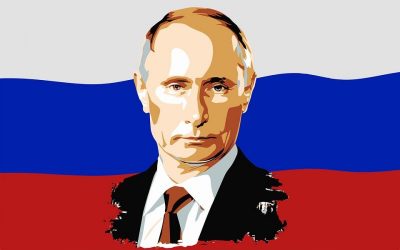Russia’s Rejection of OPEC+ Was the Result of Cold Geostrategic Calculations

Russia rejected its OPEC+ partners’ request late last week to further curtail its oil production next month because it understood that doing so would make its American shale rivals more competitive, which would in turn empower the US to continue weaponizing energy for geostrategic ends, thus eventually leading to a dangerous scenario that Moscow might have been powerless to reverse if it didn’t act when it finally did.
The world is still trying to figure out why Russia rejected its OPEC+ partners’ request late last week to further curtail its oil production next month, with this surprise decision prompting the Saudis to wage their oil price war that’s since crashed the price of this indispensable resource and caused panic across the global economy. The prevailing theory is that Moscow sought to simultaneously take down its American shale rivals while chipping away at some of Riyadh’s gradually declining market share, timing its move to coincide with the US’ campaign season and Saudi Arabia’s continued political uncertainty for maximum effect. That explanation is indeed plausible but focuses almost entirely on Russia’s economic motivations, leaving out what the author believes are the crucial geostrategic ones that actually played a much larger role in this decision than most observers have yet to realize.
The Russian economy has been comparatively more successful than the Saudi one in diversifying its budgetary dependence away from resource sales, but a lot of work still remains to be done, and the ambitious task of taking this trend to its envisaged conclusion of transforming the country’s economy into a so-called “normal” (non-resource) one won’t be achieved until sometime later this decade at the absolute earliest in the best-case scenario. For the time being, resource sales are still an important component of Russia’s grand strategy, both in the sense of the billions of dollars of revenue that they generate each year and the political influence that they bestow Moscow with vis-a-vis its partners (though it should be said that its customers also exercise their own influence upon it as well which was seen most clearly during the 2005-2006 Ukrainian gas crisis). Furthermore, they’re expected to help fund President Putin’s signature $400 billion “National Development Projects”.
Although Russia has impressive reserves and a hefty stockpile of gold, its long-term budgetary planning is still dependent to a large degree on maintaining the stable inflow of energy-generated revenue. That might be more difficult to guarantee than ever before if OPEC+ continued to reduce output in order to raise the oil price since that actually makes US shale more competitive, which the US is weaponizing for geostrategic ends against Russia. In other words, while the country’s short-term economic interests rest in keeping oil prices high, this trend might counteproductivley work against its long-term strategic ones related to balancing the budget and retaining its influence abroad. For example, the US wants to supply more of the European marketplace if it can successfully delay the construction of Nord Stream II, and it also has plans to double its exports to India in order to ultimately sell five times as much of this resource to the world’s fastest growing energy market than Russia will. In addition, the US provocatively wants to poach the entire Belarusian energy market from Russia, too.
These goals might appear unrealistic at the moment, but they shouldn’t be discounted as impossible no matter what many Alt-Media pundits have claimed for self-serving political/ideological reasons. The Russian state has the responsibility to take all threats, both present or latent, very seriously in order to ensure that the country’s long-term interests aren’t negatively affected. The US’ weaponization of energy for geostrategic ends is apparently much more dangerous than many previously thought, seeing as how the Russian authorities decided to end their cooperation with OPEC+ (which in turn predictably led to Saudi Arabia’s de-facto declaration of an oil price war) in an attempt to thwart this threat. This realization should lead to a long-overdue reassessment about the nature of contemporary energy geopolitics ever since the US became the world’s largest oil and gas producer. The Russian economy isn’t yet at the point where the country could comfortably adapt to this reality and all of the potentially “dark scenarios” that it entails, hence why Moscow finally struck back last week.
Going along with OPEC+’s request late last week to further curtail its oil production next month would have emboldened the US to make even more power moves against Russia than ever before, though taking the fateful step that predictably prompted Saudi Arabia to wage its oil price war runs the risk of inflicting excessive “collateral damage” on the US sanctions-besieged and energy exporting-dependent economies of Iran and Venezuela, to say nothing of contributing to what might ultimately be a global economic crisis. It might very well be that Russian strategists wagered that it’s “now or never”, anticipating what they might have believed to be an “inevitable” crisis as a result of COVID-19’s “economic contagion” in order to justify taking proactive measures to increase the odds of their country shaping the eventual outcome. Whatever the specific motivations might have been for Russia’s decision, it’s impossible to separate them from its grand geostrategic calculations, something that the almost purely economic-focused analyses on this issue fail to acknowledge.
*
Note to readers: please click the share buttons above or below. Forward this article to your email lists. Crosspost on your blog site, internet forums. etc.
This article was originally published on OneWorld.
Andrew Korybko is an American Moscow-based political analyst specializing in the relationship between the US strategy in Afro-Eurasia, China’s One Belt One Road global vision of New Silk Road connectivity, and Hybrid Warfare. He is a frequent contributor to Global Research.

